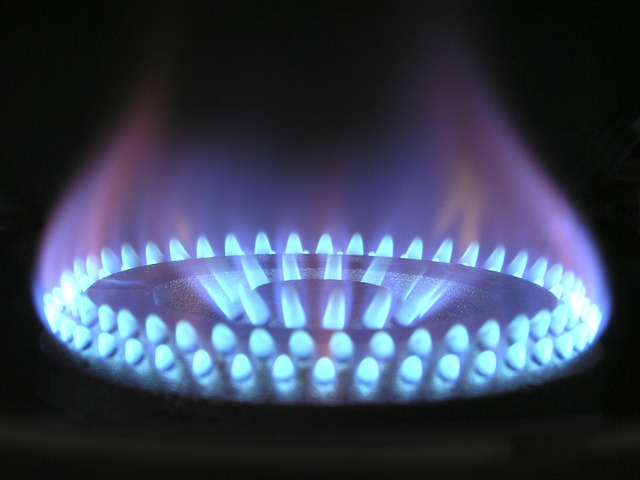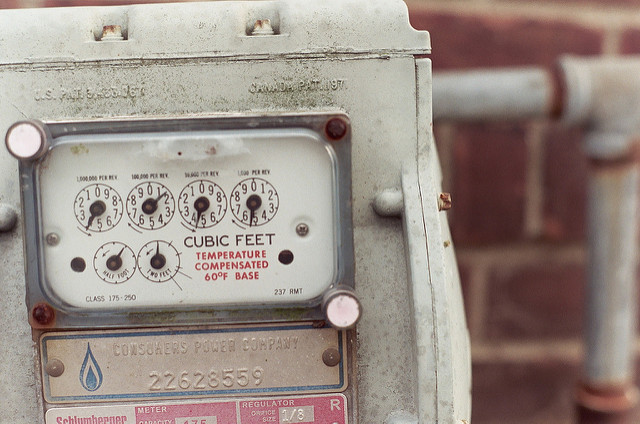Natural Gas vs Propane: What's The Difference?
You may be surprised to know that they are not the same!
In today's world, we no longer have to rely on just wood or electrical appliances to provide heat for our indoor and outdoor spaces. Now we have options, and that includes both propane and natural gas. While there is no right or wrong choice between these two fossil fuels, your personal decision will depend on a number of things, including preference, needs, availability, and budget.
Beyond the fact that propane is compressed into a liquid form and natural gas remains in a gaseous state, let's explore the many differences between the two.
PROPANE
 Propane (or liquid propane) is very energy efficient and does not require a lot of BTUs to power your feature. It is a non-toxic, colorless, liquefied petroleum gas. Did you know that an identifying odor (ethanethiol) has to be added to the gas so that leaks can be detected? Otherwise, it is virtually scentless! Propane is perhaps the cleanest burning fossil fuel option. Tests conducted by the EPA show that it is not harmful to soil or water, nor does it pollute the environment if released into the atmosphere.
Propane (or liquid propane) is very energy efficient and does not require a lot of BTUs to power your feature. It is a non-toxic, colorless, liquefied petroleum gas. Did you know that an identifying odor (ethanethiol) has to be added to the gas so that leaks can be detected? Otherwise, it is virtually scentless! Propane is perhaps the cleanest burning fossil fuel option. Tests conducted by the EPA show that it is not harmful to soil or water, nor does it pollute the environment if released into the atmosphere.- Because propane is heavier than air, there are two main concerns when using it as a fuel source for an outdoor fire feature:
- Propane tends to settle at the bottom of fire pits and bowls. In order to lighten the gas, an air mixer is connected between your fuel line and burner to draw in 90-95% oxygen. This promotes a safer, cleaner burn in your fire feature.
- Fire glass can only be used in the top 2 inches of a liquid propane fire feature. It is not recommended to completely fill features that have large, deep spaces with fire glass. Remember - propane will sink to the bottom of your feature, even with an air mixer. Fire glass will trap the glass and prevent it from getting the appropriate amount of oxygen. This will lead to explosion, causing property damage and even personal injury. We always recommend the use of lava rock with propane features, as this media is lightweight and porous enough to help disperse the gas throughout your fire pit or bowl. Also, burner pans will help keep fire glass at the top of the feature.
- Propane compressed into liquid form and is sold in portable tanks at gas stations and hardware stores, or larger tanks through fuel companies. If you plan on enjoying your fire pit frequently, we recommend having a larger tank installed by your home. A smaller version, such as a 20-pound tank, will fuel your fire pit for about 10 hours.
NATURAL GAS
 Natural gas is the result of broken down plant and animal matter from deep below the earth's surface. While it is considered a greenhouse gas, it has earned the title of "clean energy alternative" due to its low emissions rate and ability to burn cleaner than other fossil fuels.
Natural gas is the result of broken down plant and animal matter from deep below the earth's surface. While it is considered a greenhouse gas, it has earned the title of "clean energy alternative" due to its low emissions rate and ability to burn cleaner than other fossil fuels. - Natural gas is extremely lightweight, making it an ideal choice for decorative fire glass and ceramic stones. It is also more cost effective efficient when compared to propane; however it requires more BTUs to supply enough pressure to gas burning appliances.
- Natural gas remains in a gaseous state and is delivered by fuel mains that are buried underground, then routed to your home via smaller pipe lines. Your local utility company connects the pipes to a meter outside your home, which measures how much natural gas is consumed by your household. From there, individual lines connect to the gas appliances inside and outside of your home.
- If this the type of fuel source that you have, a certified gas technician can easily route an extra line to your fire pit or bowl.
Now that you know the difference between natural gas and propane, which fuel source is right for you?
